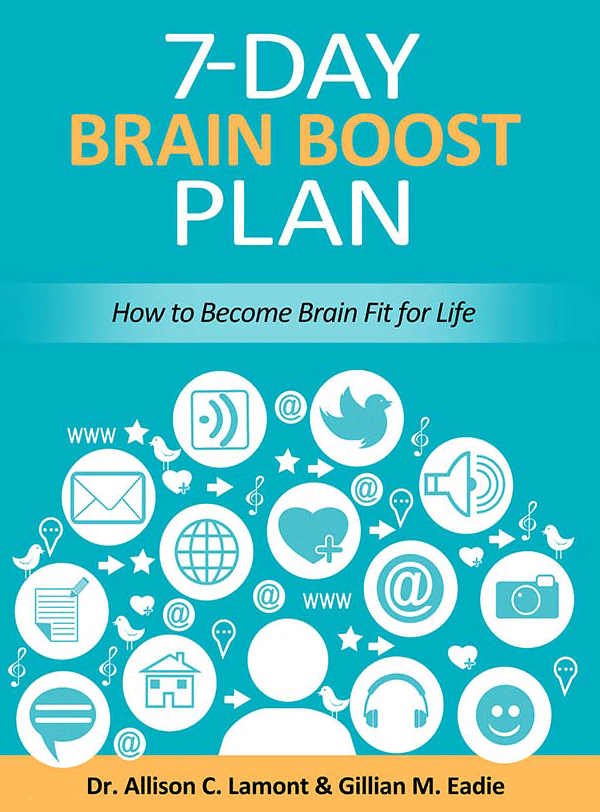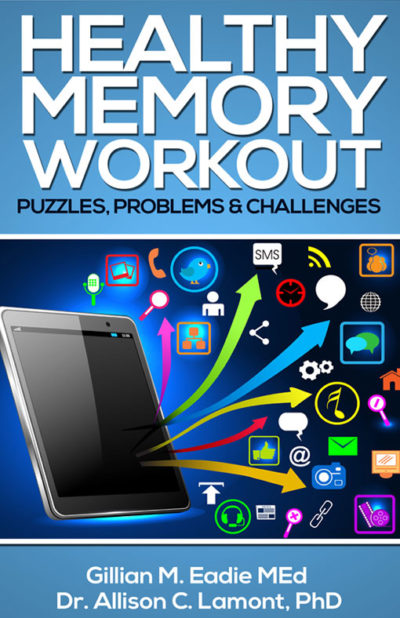Brain fact or brain myth?
What do YOU know is true?

Test yourself on these eight questions.
1. What percentage of your brain do you use?
- 10%
- 50%
- 100%
Answer
100%. The idea that you do not use all of your brain is a widespread myth. Brain scan studies show all areas are active. Don’t be taken in by claims that products will activate ‘the rest of your brain’ – they won’t do anything.
2. Some people are right-brained and others are left-brained.
Fact or Fiction?
Fiction. Both sides of the brain work together on every mental task. Education and life experience tend to influence and strengthen certain types of skills but it is a myth to say that logical thinkers use the left side of their brain and creative people rely on the right side of the brain.
3. What percentage of your intelligence is set by your genes?
- 10%
- 50%
- 80%
Answer
50%. Your mental capacity depends on a lot of different things and genetics is one of them. Your home life, education, resources and nutrition also play major roles.
4. How many brain cells do adults grow per day?
- None
- 100 – 350
- About 700
Answer
About 700. It used to be thought that you were born with all of the brain cells you would have for life but that is a myth. Brain cells can be lost and they can also grow. Certain habits, like exercising, can boost the number of brain cells you make. But many of these die within a week if they are not used. That’s why engaging your brain and learning new skills can keep your brain healthy and growing.
5. The brain is grey.
Fact or Myth?
Myth. The brain is often pictured as a dull grey mass but while it is true that it does have grey matter, it also has white matter, the blood vessels are red and the area in the middle is black. So when you see a preserved brain in a museum, it is because of the formaldehyde used to preserve the organ.
6. Listening to classical music improves the IQ of babies.
Fact or Myth?
Myth. Recent studies show that the popular fad of listening to Mozart to enhance IQ has no scientific basis. Although a pleasurable experience, the music has no real effect on intelligence.
7. What happens to the brain during sleep?
- It shuts down
- It rests
- It’s busy
Answer
It’s busy. While your body is resting during sleep, your brain stays active controlling many of the functions of your body, like breathing. Your brain sorts through the day’s information and consolidates your learning into the long-term memory. The brain also clears out certain kinds of waste which researchers believe may lead to dementia over time.
8. What age is it best to learn new information?
- Age 3 and under
- Ages 11 – 18
- Any age
Answer
Any age. While it may seem that the brains of babies soak up the most information, research shows that your brain can grow and change at any age. The London taxi driver study demonstrated growth in the hippocampus and the end of their extensive course of memorising the busy streets and routes.
Your brain is precious.
Use it!
Protect it.
Learn something new everyday.






That test was so good and dispelled many myths I have heard over the years. One particular one was a fad with one teacher I knew. Play Mozart to children to calm them. And many of the others.
Ha! A lot of money has been made with those baby CDs! They probably calmed the parents, though …..
I used to play Brahms Lullaby to my son when he was a baby via a record I might add. Such quality.It always soothed him instantly and me too!
And now he’s the only musical one in the family
I am very concerned about question 7. How can we stop the brain from clearing certain kinds of waste which can lead to dementia? I feel you should not have just left that information hanging, without more information.
I found that very interesting and informative. Loved it.
Well there you are! Maybe research doesn’t always reflect the power of a relaxed environment and parental encouragement. That is such a wonderful lullaby.
Thank you for the opportunity to think about things I don’t normally think about.
I can understand your concern and will come back to you soon with a clear explanation of how the brain very efficiently manages its ‘waste disposal’.
I think I got most of those wrong which just goes to show how we absorb false info.
Hi there, that was really good, specially about the 700 cells we grow and the brain working when we are asleep I can really believe that.
Anne
That’s why we are here to help dispel those myths – and to let everyone know that we can keep activating and growing new neurons whenever we do something challenging.
Dr Allison Lamont has written this fuller explanation for you. thank you for a very important question.
‘The brain is a very expensive organ for the body to maintain. Although it is only 2% of the body, it uses about 20% of the body’s energy to work efficiently. This high energy demand lets us sense the world, communicate with one another, carry out all the cognitive tasks we encounter and to remember the myriad of things we know.
When our brain neurons are consuming such high amounts of energy, they also produce a lot of debris that floats around the brain. This can affect brain function. It is mainly leftover proteins, which if they are not removed, can stick together and form clumps which we know are toxic to the brain. The biggest problem is the clumping of a protein, amyloid beta, which is associated with decrease in cognition, memory, and overall brain functioning in people with Alzheimer’s disease.
While we know sleep is important for memory formation and consolidation, researchers such as Nedergaard have found that sleep is really vital to clearing the harmful waste from the brain allowing it to work well while we are awake. Nedergaard thinks this happens during sleep because it’s probably not possible for the brain to both clean itself and at the same time be aware of the surroundings, to talk, to move and carry out all the normal brain functions we rely on. As we sleep, the flow of cerebrospinal fluid in the brain increases greatly, washing away the harmful waste proteins that have built up between brain cells during the day.
This is another really good reason to make sure we have plenty of sleep.
Reference: Paravascular pathway facilitates CSF flow through the brain Parechyma and the clearance of interstitial solutes, including Amyloid β. Lliff, JJ, Nedergaard, M et al., Science Translational Medicine, Vol. 4, 147.
That was so very useful especially highlighting myths that I had previously believed. Thank you.
Please keep up the good work.
With regard to question 7, does it state that removing waste while sleeping causes dementia or removing the waste prevents dementia, which seems more logical. It just doesn’t make sense otherwise. Maybe it is a trick question!
Oh no, it definitely doesn’t CAUSE dementia! We all need that brain waste removed. Dr Allison Lamont has written a fuller answer to that response which, in the interest of being brief, has caused confusion. Our apologies for this.
Recently I found myself musing. It was on that inspirational word “Empower”. Descriptions come to mind, like, choices, achievement, breaking free, new purpose and direction from another understanding. The word “unshackled” sounds apt to me as well. But the dictionary states empowerment as “giving someone the authority or power to do something”.
All that musing due to reading Brainfit for Life’s quick brain quizz.
Last year I turned 65. An ambivalent moment for me. At this time I was getting a little irked by “senior moment” statements that started floating around. As everyone is entitled to an opinion I listened with polite resentment; at the same time wondering why this reactionary sensitivity from me. Nevertheless, in this instance, my friends became my catalyst, empowering me to quietly search the internet for meaning to life 65 years and beyond.
Finding The Memory Foundation (now known by Brainfit for Life) was a very good experience. The knowledge that my brain was a living part of me that can grow and expand throughout life was something to be joyful about and certainly makes the way forward positive and resonates hope and promise. Gone is the statement “It is all down hill from here”.
Hence I have become empowered and unshackled enough to enjoy the senior jokes that come my way. Maybe my brain is growing those neuron things a little more in the company of and interaction with my friends!
Recently I was getting ready for my bikeride. Snapping on my black lined gloves and popping on my sleek electric-blue helmet I roared down the drive and down the hill where I park my car. Oh … where is the bike?
Up the hill, down the drive and in the garage where I snapped in my gloves and popped in my sleek electric-blue helmet. With great glee, and in my unshackleness I was able to relate my senior moment to my friends.
Finally, I suppose you all have heard the little saying “Curiosity killed the cat”. .. but did you know “that information brought him back!”
A great account, Mary! And you will be growing even more neurons with the bike-ride and those gatherings with friends. Keep on having fun!
Although not a techno wizz, I enjoy playing scrabble,solitaire and other games on my iPad.
Do these games help to keep the brain active.
I am 80.
These are all excellent for brain exercise, especially if you are working at a challenging level. To grow new brain connections, you need to doing something that is difficult for you so that you can almost feel your brain working hard (too often that is when people give up!)
Fascinating!!!a good read, yes at 76 I read, walk coffee group, movies, garden club, gardening, friends, have to stay motivated which sometimes isn’t easy. Grandchildren bring a different perspective on things!!!!being grateful is important too! Kia Kaha
Well done! This is exactly the range of activities that contribute to a lovely brain and memory. Keep it up!
This is really interesting, I really urge you to keep it up.
So glad you found the information helpful!